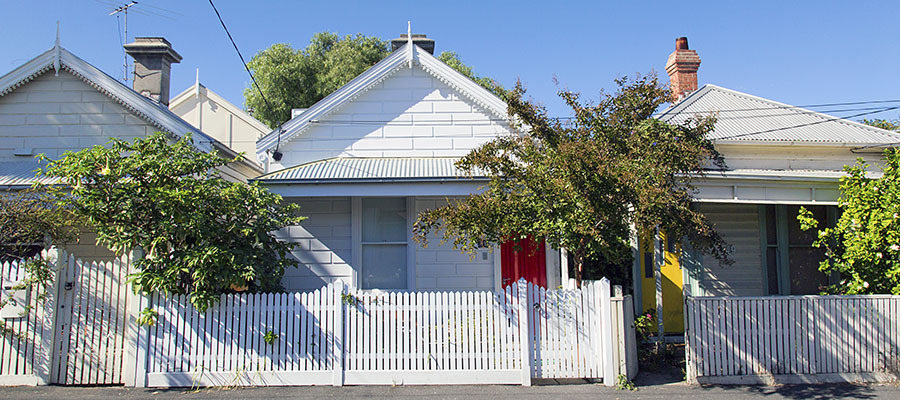Rent vs. buy: Is renting always a bad thing?
By Matthew Dunbar | 08/12/2021

Trying to get on the property ladder today can feel like a losing game. Just as your deposit reaches a healthy point, prices continue to rise, and you need to save more to get a foothold. You’ve undoubtedly heard that ‘rent money is dead money’, but this isn’t necessarily true.
If you aren’t in a position to buy right now, whether for financial or lifestyle reasons, there are ways to get ahead. Here are a few things to consider when it comes to deciding whether the ‘Australian Dream’ is right for you.
Homeownership has benefits, but so does renting
There is no doubt that there are many benefits to owning your own home. Firstly, it offers security. You choose where you want to live, and you can stay there, as long as it remains affordable and suits your lifestyle. Secondly, it also gives you certainty when planning your pathway to financial freedom. You know how much debt you have to repay and can focus on that along with what you will put into other investments to achieve this critical goal.
Thirdly, you can make it what you want – no more having to ask to put up a painting or wishing you could repaint. In addition, your home can be an investment. However, it’s important to remember despite meteoric price rises in our major markets, buying a home should be a lifestyle investment, not a financial one. There are no guarantees that prices will continue on the same trajectory.
However, renting has its own benefits that are often overlooked in the ‘dead money’ argument. As a renter, you have a level of lifestyle flexibility that you won’t get as a homeowner. While you may have to move at the behest of the owner, you can also choose to move when a property or area no longer suits your lifestyle or budget.
Secondly, homeownership is expensive. In today’s low-interest environment, a mortgage may look attractive and repayments easy to cover, but it’s important to remember we have reached a historic low point in interest rates. So chances are rates will rise, increasing your repayments. In addition, you are responsible for all maintenance expenses, and this can get costly. If you are on a Strata Title, you have to pay regular fees and a share of major expenses, such as repairs to the façade, lift or facilities like gyms and pools. As a renter, these costs (or the work itself) aren’t your responsibility.
Renting may also mean you can live in an area where you couldn’t afford to buy. For you, this could mean being closer to work, transport, better schools, or other amenities that are important to your lifestyle, and that location could have a value of its own.
If the benefits of renting appeal to you, the key is to make sure you put your savings to work and have a plan to achieve your financial goals without owning a home.
Renting can be a lifestyle – and financial – choice
With this flexibility comes more opportunity to control your costs. Yes, rents are set by the market and can be astronomical in some areas, but you can move if it’s no longer affordable. Typically, your rent should be no more than one-third of your income, and if you can stick within this boundary, there are other ways to grow your financial position.
As a renter, your funds aren’t tied up in a single asset that can be hard to move if you need quick access to cash, so you have more control over how you spend your income after the necessities. After you have covered the essentials and ensured you are building an emergency fund, your budget should include some money to invest.
It takes discipline, but you don’t need a lot to get started
While it can take a little extra discipline to manage your money, there are some ways you can tweak your spending to find a little more, from reducing bills to making minor changes to your lifestyle.
Getting started with investing doesn’t involve vast amounts of capital. You can get started with a reasonable investment portfolio with as little as $1,000. And even if this is not attainable right now, there are a plethora of micro-investing apps out there that allow you to get started with small change.
If you’re new to investing, it’s a good idea to build your understanding of the world of finance. In the age of the internet, there is a wealth of free resources out there to help you understand how it all works, including Apt’s free Market Watch newsletter that keeps you updated on contemporary financial planning topics.
Another good idea is to talk to a financial planner. There is a common misconception that this is only for people with significant assets. However, the reality is that a financial planner acts as a personal finance coach to help you get and stay on track with your finances.
So, is renting always a bad idea?
The simple answer is no, as long as you have a plan to get ahead, and homeownership isn’t the only way. If you are thinking about planning your finances, whether as a renter or homeowner, get in touch with the team at Apt Wealth to find out how we can help.
General Advice warning
The information provided in this blog does not constitute financial product advice. The information is of a general nature only and does not take into account your individual objectives, financial situation or needs. It should not be used, relied upon, or treated as a substitute for specific professional advice. Apt Wealth Partners (AFSL and ACL 436121 ABN 49 159 583 847) and Apt Wealth Home Loans (powered by Smartline ACL 385325) recommend that you obtain professional advice before making any decision in relation to your particular requirements or circumstances.









